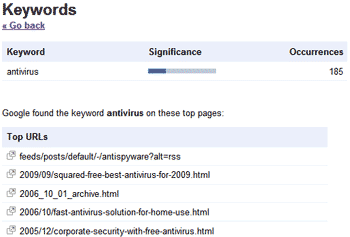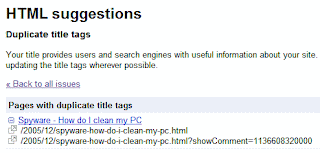Do you know what's the difference between these two custom error not-found pages? (where to find them? hint: look in your .htaccess file)
ErrorDocument 404 http://your_website.com/error404.phpIt appears that the first line returns 302 Found header code and then redirects to your 404 page, which is a really bad thing from an SEO standpoint and gets penalized. The second line gives you the normal 404 pages returning a proper 404 header code.
ErrorDocument 404 error404.php
Too many 301 redirects
Can you recognize this code?
RewriteRule (.*) http://www.newdomain.com/$1 [R=301,L]You may think that it is OK when you redirect your old to a new domain (in case of having Panda penalty applied) via 301 temporary header redirect. But what happens if the old domain already has some kind of penalty applied. Well, it automatically transfers to your new domain, because as you've might noticed 301 is actually a PERMANENT redirect and transfers all the weight from the previous domain. So go, check and fix those two cases and be really careful!
Usage of iframes between subdomains
On one website(~500pages) with over 300 pages indexed in Google, I've used an iframe linking to other sub-domain in order to display relevant content. When I removed the iframe almost immediately, in less than 24 hours my indexed results grew from 300 to 360.
But why?
I started searching on the forums and it appeared that Google penalty filter was triggered by such a huge usage of iframes (mistakenly taken as poisoning attack). Here is a short explanation from Matt Cutts on this:
"Essentially, our search algorithm saw a large area on the blog that was due to an IFRAME included from another site and that looked spammy to our automatic classifier."
link: http://groups.google.com/group/Google_Webmaster_Help-Indexing/browse_thread/thread/68692a9aefae425f
Solution:
Remove all the iframes that you have or replace them with ajax calls or just static HTML content.
Wait a few days and run: site:http://yourwebsite.com to see the difference in the results!
Good luck!


